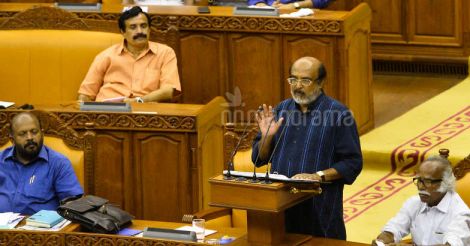New Delhi: Is the Budget presented in Parliament or Assembly a secret document?
The answer is `yes,’ going by the definition of the Kerala High Court in 1960.
Justice P. Govinda Menon defined the Budget as an official secret document in connection with a case regarding the budget leak during the tenure of the first Kerala government in 1957.
The state government had moved the High Court against Kaumudi editor K. Balakrishnan and its city correspondent for leaking the Budget documents.
The government was not satisfied with the punishment awarded by the sessions court and sought an enhancement.
The sessions court had awarded a fine of Rs 100 to the editor and Rs 75 to the correspondent.
The court, in its order issued on June 15, 1960, says that it was bound to clarify whether the Budget is an official secret. The court clarified that there are no rules that say that the Budget is a secret till presented in the assembly.
Also read: First budget, first leak: A not-so-proud tradition
But on the basis of the available evidence, constitutional rules and what has been prescribed in law books, Budget documents are official secrets.
As per Section 5 of the Official Secrets Act, the court approved the punishment awarded to the accused, but refused to scale up the punishment.
The court considered the finance secretary’s statement that the leak of information did not have any bearing on the economy. India has adopted the British Parliamentary system of treating the Budget as an official secret.
The court also relied on the British parliamentary practice and also the book, `Constitutional Law’ jointly authored by E.C.S. Wayde and G. Godfrey Philips.
The books says that the Budget would be a secret till it is presented by the Chancellor.
It has also been explained that the Budget is being kept as a secret to avoid a speculation in the stock market and also from influencing the prices in the market.
The allegations of Budget leak in Parliament came out in 1992. The Opposition alleged that the then prime minister, Manmohan Singh, had shared vital details of the proposals in the letters he wrote to the heads of the International Monetary Fund and the World Bank three months before the presentation of the Budget.
Instead of tabling the documents in Parliament, the Congress wriggled out of the situation by furnishing it in the library.
























 Thomas Isaac during Budget presentation
Thomas Isaac during Budget presentation